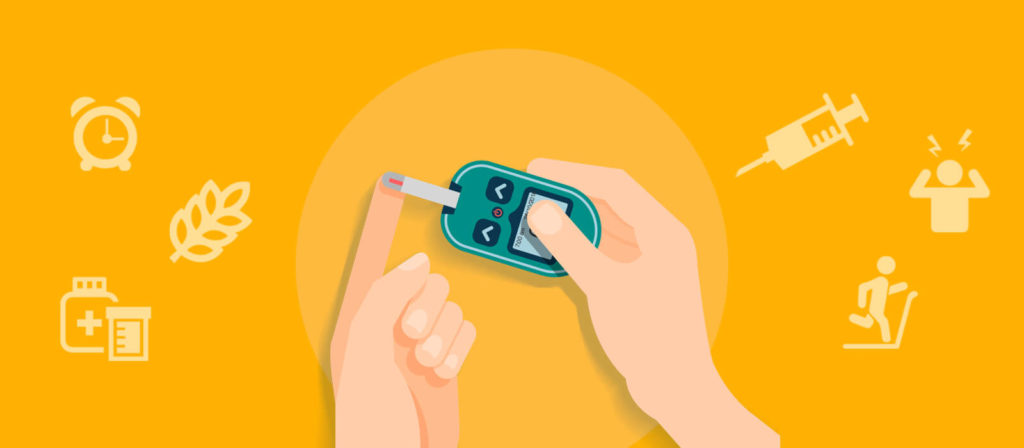ARTICLE AT A GLANCE
If you’re in danger of developing diabetes, your body could be trying to warn you with a host of distinct symptoms. Recognizing the early signs of this chronic (and often undiagnosed) condition can help you prevent or even reverse the disease. In this article, we’ll explore:
In the United States alone, more than 30 million people have diabetes. About 7.2 million of them are still undiagnosed. If you crave sugar or sweet things during the day or get “hangry” when you skip a meal, then you might be among the undiagnosed population. This could be your body hinting that you might be prediabetic.
The risks of ignoring these signs are enough reason to take them seriously. Those risks include fat gain, excess cortisol, and high triglyceride levels — all of which are precursors to atherosclerosis and heart disease. Your body also produces free radicals that lead to chronic inflammation and disease, which is partly why diabetes is one of the top 10 causes of death in the United States.
Signs of Insulin Resistance
![]()
When your body is resistant to insulin, it affects all aspects of your life. Body composition, including increased belly fat, is just one of those aspects. It also affects your cardiovascular and hormone health, and the resulting high blood sugar is a major cause of heart disease, kidney disease, stroke, amputation, and blindness.
The hormone insulin comes from your pancreas — an organ that sits behind the stomach — primarily after you eat carbohydrates. When you absorb carbs into your bloodstream, they elevate your blood sugar. When your pancreas detects it, it secretes insulin so your body can process the sugar, or glucose, into energy.
If you have diabetes, either your body doesn’t respond as well to insulin or your pancreas doesn’t produce enough of it. Your blood glucose levels skyrocket because your body can’t convert it into energy, and that excess can cause several distinct symptoms:
1. Brain fog and fatigue. Glucose is your brain’s primary source of energy. As diabetes causes it to fluctuate, you’re more likely to experience brain fog and fatigue. That might include an inability to concentrate or remember things, confusion, disorientation, irritability, frustration, or mood swings.
2. Skin tags. These are small, benign growths of skin often referred to as stalks that can be associated with several different health conditions. However, studies have shown a correlation between multiple skin tags and diabetes. Therefore, it’s wise to suspect the disease if you notice several of them on your body.
3. Progesterone imbalance. Progesterone is another hormone that plays a vital role in regulating blood sugar levels. After large meals, its levels are known to drop, and studies have confirmed that progesterone can impair insulin sensitivity in fat and muscle tissues. Any progesterone imbalance can dramatically affect blood regulation, so have yours checked regularly.
4. Excessive urination and thirst. These symptoms are also known as polyuria and polydipsia, respectively. Excess blood sugar forces your kidneys to work overtime to filter and absorb it. If they can’t keep up, the sugar is secreted into your urine, dragging fluids from your tissues and leaving you dehydrated. As you drink more fluids to quench your thirst, you’ll urinate even more.
5. Fungal infections. In people with diabetes, the yeast-like fungus Candida can thrive in moist and warm folds of skin. The best way to prevent this is to routinely practice good skin care and personal hygiene. Effectively managing your weight and blood sugar levels will also make it harder for the fungus to thrive.
6. Insulin and sugar levels. The surest way to know whether you have diabetes is to test your blood sugar levels and insulin sensitivity. You can test your glucose levels yourself after an overnight fast. Optimal levels should average about 75 to 85 mg/dL. Anything above 100 mg/dL is considered prediabetic, while levels above 125 mg/dL indicate diabetes.
Lifestyle Choices to Prevent Damage
If these or other signs warn you of diabetes, or if your blood sugar levels indicate that you’re in the danger zone, then it’s time for a change. The best place to start? Lifestyle changes. They can help you reduce your risk of diabetes as well as prevent secondary health problems if the condition develops.
Managing your glycemic response is one of the most important of those changes. Stick to a low-net carb diet to shift yourself out of the non-fiber, carb-based metabolism that relies so heavily on insulin turning sugar into fuel. Switch out refined sugar with low-glycemic sweeteners, such as palm, coconut, or monk fruit.

Add plenty of healthy fats, grass-fed beef, and wild meats to your diet. Fish oils (DHA), chia seed, flaxseed, cod-liver oil, sardines, and walnuts are all rich in healthy omega-3 fatty acids, which help fight chronic inflammatory conditions. For optimal results, try limiting your meals to certain windows of time throughout the day, a strategy known as intermittent fasting.
For instance, fasting for 18 hours and eating during the other six gives your body time to stabilize blood sugar levels and increase your cells’ insulin receptivity. Combine intermittent fasting with plenty of regular exercise to further control inflammation and blood sugar.

Strength training in particular helps make your muscle tissues more sensitive to insulin. Your muscles need more energy to power through the increased activity, which speeds up the clearance of glucose from your bloodstream. However, all forms of exercise are beneficial for lowering your HbA1c values when you have diabetes.
Diabetes can affect every aspect of your life, and the sooner you have it diagnosed, the better. By identifying the warning signs and implementing a few important changes to your diet and lifestyle, you can successfully mitigate the symptoms and consequences of the disease.
Kelley Baker is a Nutrition Health Coach with 15 years of experience of personal training and holistic lifestyle coaching. Her certifications include NASM, C.H.E.K, ICANS, and Poliquin.






